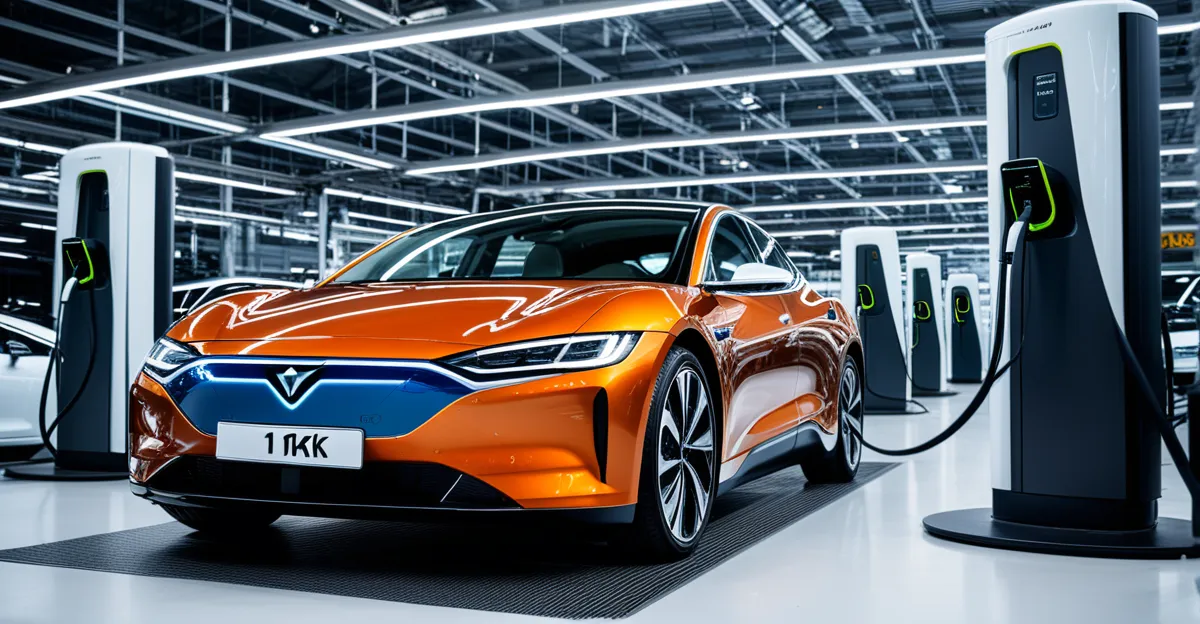Transformation of UK Automotive Manufacturing
The UK automotive manufacturing sector is undergoing a significant transformation driven by the rapid shift towards electric vehicle manufacturing UK. Traditional production techniques are evolving as manufacturers invest heavily in state-of-the-art facilities tailored to EVs. This transition includes retooling factories, adopting advanced robotics, and integrating digital technologies to enhance efficiency and meet precise EV specifications.
Legacy car makers are adapting by diversifying their portfolios to include electric models, while new entrants, often startups focused exclusively on EV production, are gaining ground. This shift disrupts the existing market, fostering increased competition and innovation.
Also to discover : How are UK automakers navigating the shift to autonomous vehicles?
Current automotive industry changes reveal a clear trend: a considerable rise in EV production output and capacity across the UK. Government mandates and consumer demand accelerate these trends, encouraging manufacturers to prioritize EV development. Moreover, the UK automotive sector increasingly emphasizes sustainable practices, aligning with environmental targets.
Looking ahead, the future outlook for UK manufacturing is optimistic but challenging. Success depends on continued investment in technology, skilled labor, and supply chain resilience tailored to the specifics of electric vehicles. This transformation positions the UK as a significant player in the global EV market, provided it navigates the evolving landscape effectively.
Topic to read : How is the UK automotive sector preparing for autonomous vehicles?
Impact on Automotive Jobs and Skills
The shift towards electric vehicle manufacturing UK is transforming the automotive workforce significantly. Traditional roles centered on internal combustion engine (ICE) assembly are declining, replaced by new positions requiring expertise in electric drivetrains, battery technology, and software integration. This change demands a profound upgrade in skills across the sector.
EV industry jobs UK now emphasize electrical engineering, battery management systems, and high-voltage safety. Employees must understand advanced electronics and digital diagnostics better than before. Consequently, there is a rising need for comprehensive retraining programs to equip the existing workforce with relevant competencies. Upskilling helps avoid job losses while encouraging smoother transitions within manufacturing plants.
Emerging opportunities arise in battery production, EV software development, and charging infrastructure installation, broadening career prospects. However, the automotive workforce transformation also presents challenges such as skill shortages and recruitment difficulties in specialized fields. Addressing these requires coordinated efforts from manufacturers, educational institutions, and government bodies to align training curricula with industry demands.
In summary, adapting to electric vehicle manufacturing UK is not just a technological shift but a human capital evolution, demanding agile, anticipatory strategies to ensure the workforce remains capable and competitive in this dynamic sector.
Evolution of Supply Chains and Components
The shift to electric vehicle manufacturing UK demands intricate changes in EV supply chains UK. Traditional supply networks focused on internal combustion components are being reconfigured to support the specialized needs of electric drivetrains and battery packs. This requires sourcing materials like lithium, cobalt, and nickel, which are critical for battery production but pose sourcing challenges due to global demand and geopolitical factors.
In response, UK manufacturers are increasingly investing in domestic battery sourcing and production facilities to reduce reliance on imports and mitigate supply risks. These efforts aim to establish a robust, localized battery supply chain, essential for sustaining EV production trends. The integration of battery manufacturing within the UK is also poised to create new jobs and foster innovation in battery chemistry and recycling technologies.
Logistics for electric vehicle components face complexities such as handling sensitive materials and just-in-time delivery requirements. Efficient coordination between suppliers and assemblers is crucial for cost control and timely production. While these shifts present hurdles in establishing resilient, agile supply chains, they offer opportunities to strengthen the UK’s position in the global EV market by prioritizing sustainability and technological advancement.





